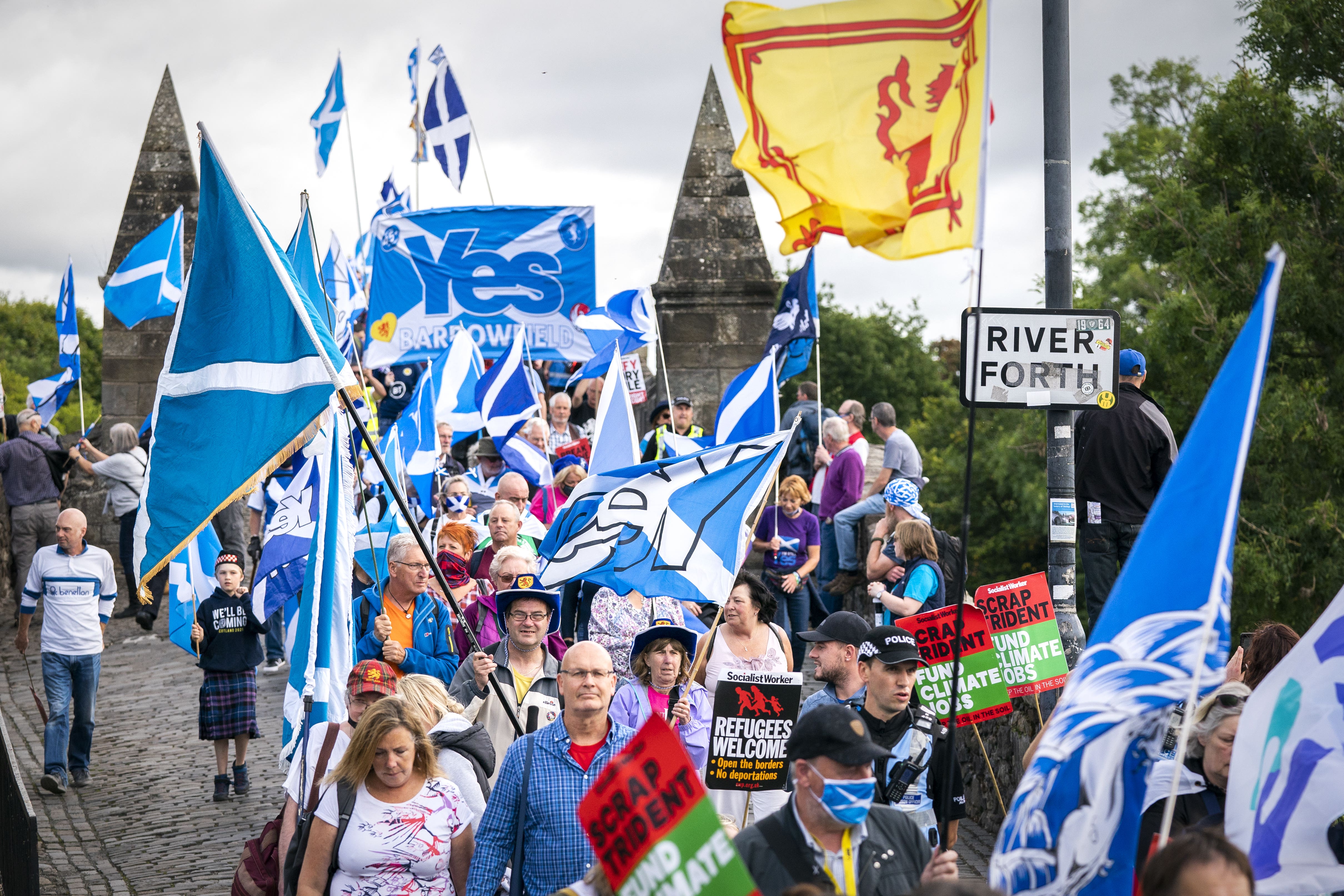Supreme Court Indyref2 decision: What is it and what does it mean?
The Supreme Court ruled that the Scottish Parliament does not have the power to legislate for a referendum.

The UK’s highest court has ruled the Scottish Parliament does not have the powers to legislate for a referendum on independence.
The court was asked by Scotland’s top law officer to decide if a prospective referendum Bill was within the scope of Holyrood, with all five justices ruling it was not, a judgment published on Wednesday said.
– What was the court asked to rule on and why?
At the request of Nicola Sturgeon, Lord Advocate Dorothy Bain KC referred the Bill to the Supreme Court to allow it to render judgment before the legislation was introduced in a bid to break the stalemate on the issue.
The 18-page referral, submitted in July, argued that a consultative referendum on separation did not infringe on reserved powers – legislative issues that are decided on at Westminster as opposed to Holyrood – and was therefore in the gift of the Scottish Parliament.
The UK Government, however, argued that the Court should not even rule on the substantive question, claiming the referral was premature because the Bill had not been enacted by the Scottish Parliament.
– What did the court rule?
On Wednesday morning, Supreme Court president Lord Reed announced that all five judges in the case ruled the Scottish Parliament does not have the powers to enact the Bill.
The Supreme Court president said: “A lawfully held referendum would have important political consequences relating to the union and the United Kingdom Parliament.
“Its outcome would possess the authority, in a constitution and political culture founded upon democracy, of a democratic expression of the view of the Scottish electorate.”
The judges also ruled that the referral was not premature, as had been argued by the Advocate General for Scotland.
– How have those involved reacted?
Nicola Sturgeon, for her part, said she would respect the union, but reiterated her party’s plan to make the next national election in Scotland a “de facto referendum”, with a majority of Scottish votes giving them a mandate for independence.
She also said the ruling “exposes as myth” of the UK’s status as a voluntary union.
But opposition parties have urged the First Minister to drop her “obsession” with separation and focus on the issues facing Scotland.
Prime Minister Rishi Sunak, speaking at Prime Minister’s Questions in the hours after the judgement was handed down, said: “The people of Scotland want us to be working on fixing the major challenges that we collectively face, whether that’s the economy, supporting the NHS or indeed supporting Ukraine.
“Now is the time for politicians to work together, and that’s what this Government will do.”
– What happens next?
Two possibilities are now in play as a result of the judgement, one straightforward and unlikely and the other more unclear but also more likely.
The Scottish Government could continue its push for a Section 30 order, which would see the UK Government allowing Holyrood the necessary powers to hold a referendum.
While Nicola Sturgeon told journalists in an hour-long press conference on Wednesday she remained open to discussions with Rishi Sunak about such a move, she would not go “cap in hand” to seek one.
A succession of UK prime ministers have signalled their opposition to such a move in recent years, with Theresa May and Boris Johnson having rejected such approaches.
The most likely scenario would be treating an election as a referendum, a course of action the First Minister announced alongside the plans for the referral to the Court.
Speaking on Wednesday, she committed to this option, saying a majority of people in Scotland voting for the SNP in the next general election – expected before January 2025 – would be a basis for the start of independence negotiations.
The SNP, she said, would meet at a special conference early next year to hash out the details of the approach it would take to such an election.
It is not clear if other independence-supporting parties would follow suit.
– Is a de facto referendum binding?
The short answer is no – the UK Government, whomsoever they may be after an election – will be under no legal requirement to begin negotiations for Scotland’s independence.
But the issue for the occupant of No 10 would more likely be political rather than legal.
A majority of Scots voting in favour of independence would increase the pressure on the UK Government to act, whether that would be to give ground on another referendum or start the process of Scotland leaving the union.
